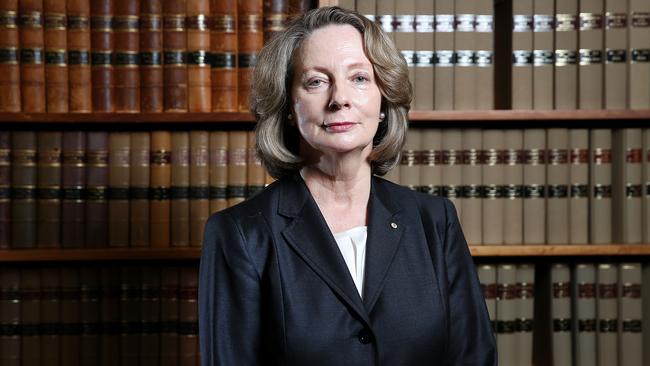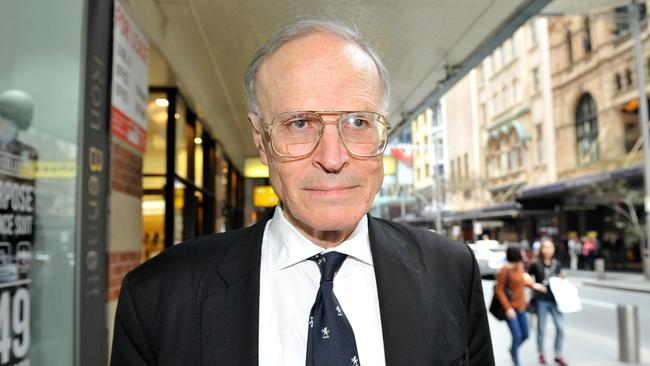Heydon inquiry: Concerns over procedural fairness
The inquiry may have lacked procedural fairness and was conducted by a person who was not a lawyer.

The inquiry that made damning allegations against former High Court judge Dyson Heydon may have lacked procedural fairness and was conducted by a person who was not a lawyer.
Those close to the affair said Mr Heydon was never allowed to cross-examine his accusers and test the veracity of their allegations. Instead, they said, the former judge was simply permitted to inspect written allegations and was allowed to provide a response that was considered by the investigator before she reached her decision.
The inquiry was conducted by Vivienne Thom, a public servant who is a former inspector-general of intelligence and security.
Dr Thom’s academic background is in chemistry and her postdoctoral research was in teaching. She is also qualified in government investigations.
In 2015, the High Court ruled that “in the absence of a clear, contrary legislative intention, administrative decision-makers must accord procedural fairness to those affected by their decisions”.
Procedural fairness generally means those affected by administrative decisions should be given the right to be heard before an unbiased decision-maker. Mr Heydon was interviewed by Dr Thom but not permitted to interview his accusers. The requirements of procedural fairness can vary depending on circumstances of a case and the adverse impact on an individual. In the case of Mr Heydon, he has been found to have engaged in sexual harassment.

On the basis of that decision, current High Court Chief Justice Susan Kiefel has issued an apology to the complainants.
Anyone affected adversely by an administrative decision that does not adhere to the rules of procedural fairness has the right to challenge the decision in court. Those close to this affair said that, when the complaints were examined, the objective of the complainants was not apparent. They did not seek a financial settlement.
None of the women is believed to have complained about his conduct at the time the incidents are alleged to have taken place.
The first the judge heard of the complaints was after law firm Maurice Blackburn took them to the High Court.
In criminal cases involving sexual allegations, courts have permitted the adversarial testing of a complainant’s testimony in the belief this was the most effective method of determining the truth.
However the rigour of this procedure has been changed by state governments in the belief complainants were vulnerable and needed to be protected.
British courts have ruled that confrontation and the opportunity for cross-examination is of central significance to the adversarial system. The US constitution gives everyone accused of criminal conduct the right to confront the prosecution’s witnesses.




